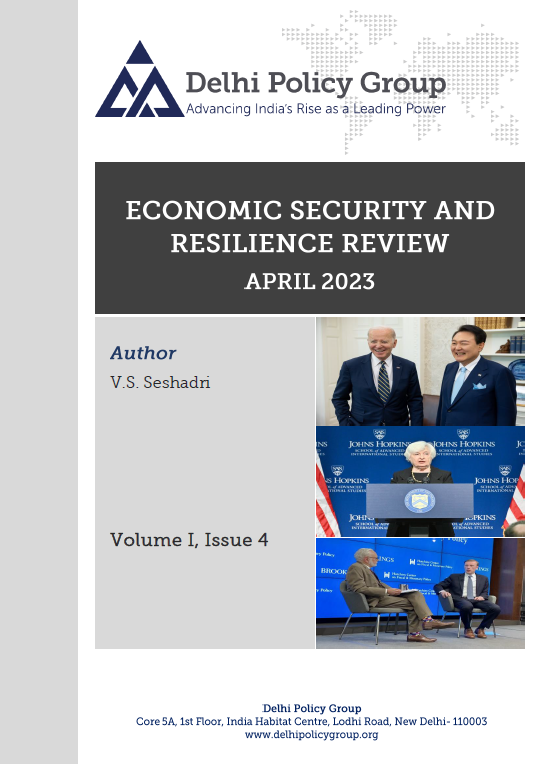Economic Security and Resilience Review
In this issue of review, we begin by looking at the key findings on the impact of the growing geoeconomic fragmentation on world FDI, which forms a key focus of the IMF’s World Economic Outlook for 2023. This is followed by a look at the discussions held by the G-7 finance ministers on the sidelines of the spring World Bank/IMF meetings, when they also took up the issue of economic resilience, and the strengthening of public finance tools that can help realise this objective.
At the bilateral level, we turn attention to the summit meeting held on April 26, 2023 between US President Biden and President Yoon of the Republic of Korea that marked another step in strengthening US strategic partnership with allies on economic security. We also briefly touch upon the bilateral export control meetings held between India and the US, and an agreement on critical minerals signed between the US and Japan which is indicative of what may form the substance of such agreements in the future.
The month also witnessed several China-related developments. There were two policy defining speeches, one by the US Treasury Secretary Janet Yellen and another by US National Security Adviser Jake Sullivan within a week from each other, which set out the directions of the Biden Administration’s industrial and innovation strategy, and approach to the relationship with China, both of which were also significantly interlinked. We note in particular the three principal objectives set out by Yellen on economic relations with China. We also flag the key elements of Sullivan’s address on renewing American economic leadership that brought out the compulsions behind this new strategy on the broader intersection between US domestic economic and industrial policies on the one side and national security, foreign and trade policies on the other. Recent actions taken by the Chinese authorities on US companies having operations in China are then briefly tracked. Of interest, indicating a contrary trend, is also how a few Chinese renewable energy companies are building plants in the US, attracted by the incentives on offer under the Inflation Reduction Act. A huge US$ 10 bn investment offer by a Chinese company on lithium mining in Afghanistan is another noteworthy development.
Among other items covered, the progress being made on the IPEF negotiations is noted. Also of note are the steps being taken by the US towards establishing a National Semiconductor Research Centre that is provided for in the US CHIPS and Science Act.



